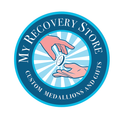
Busting Common Myths About Alcoholics Anonymous
If you are not familiar with the Alcoholics Anonymous program (AA), you may be wondering what it’s all about. Or perhaps, you have heard some things about AA programs that give you pause. There are a lot of misconceptions about what AA is and is not. Let us help bust some of the common myths about Alcoholics Anonymous and set the record straight.
Myth #1: It’s a Religious Program
One of the first misconceptions about AA is that it’s a religious program, explicitly Christian. This is completely untrue. AA encourages people to seek a higher power, but what that is for each person is undefined. Groups do run independently, however, so if a particular group seems overly Christian, seek out another that approaches the spiritual aspect in a way that you feel comfortable participating.
Myth #2: It’s a Treatment Program
Another of the common myths about Alcoholics Anonymous is that it’s a treatment program. It’s just a system for alcoholics (defined as anyone who wants to stop drinking) to support each other and work their way through the program. That being said, many treatment centers and facilities have adopted AA principles and 12 step work, so it’s easy to make that assumption.
Myth #3: It’s a Cure-All
AA is not a cure-all, and you may need to seek additional support for yourself while on a sobriety journey. Every story is different, and each person comes with unique baggage. Underlying mental illness, co-existing addiction, and trauma are all things that need more than an AA meeting to address.
Myth #4: It’s a Cult
Probably one of the most harmful of the myths about Alcoholics Anonymous is that it’s a cult. It’s completely untrue and may keep people from trying the program. What is true is that AA members are always free to come and go, work the steps faithfully or not, have a sponsor or not, and never have to give anyone money. People who have used and succeeded in AA to become sober “carry the message forward,” as anyone who found something helpful would do.
We hope this clears up some of the biggest myths about Alcoholics Anonymous. There are lots of ways to get sober and stay that way, but AA has a proven track record of working for people from all walks of life. If you have been curious - check it out!

